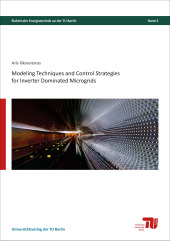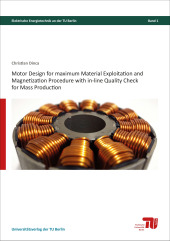Effizienzuntersuchung einer weich- und hartschaltenden Konverterstruktur mit Siliziumkarbid-Halbleitern als DC/DC-Wandler für Hybrid- und Elektrofahrzeuge

Format: 14,8 x 21,0 cm
Publishing year: 2020
An option for increasing the efficiency in electrical powertrains is using a DC/DC-converter between the traction battery and the DC-Link to create the ideal operating point for the inverter and the electric machines. To increase the overall efficiency it is necessary to have a highly efficient DC/DC-converter.With the use of wide-bandgap semiconductors it is possible to decrease the losses in comparison to conventional silicon semiconductors. Furthermore the selection of the right controlling scheme plays a key part in increasing the efficiency.In this thesis the control modes CCM and BCM will be compared. The advantage of BCM are lower switching losses achieved by using fewer switching operations and soft switching of the semiconductors. On the other hand, the conduction losses increase because of the higher root mean square current.The measurements validate the simulation model which compares both modes in a wide operational range.The research results show that the optimum control mode is a function of the operating point. The highest efficiency can be achieved by combining both modes depending on the operating point.



